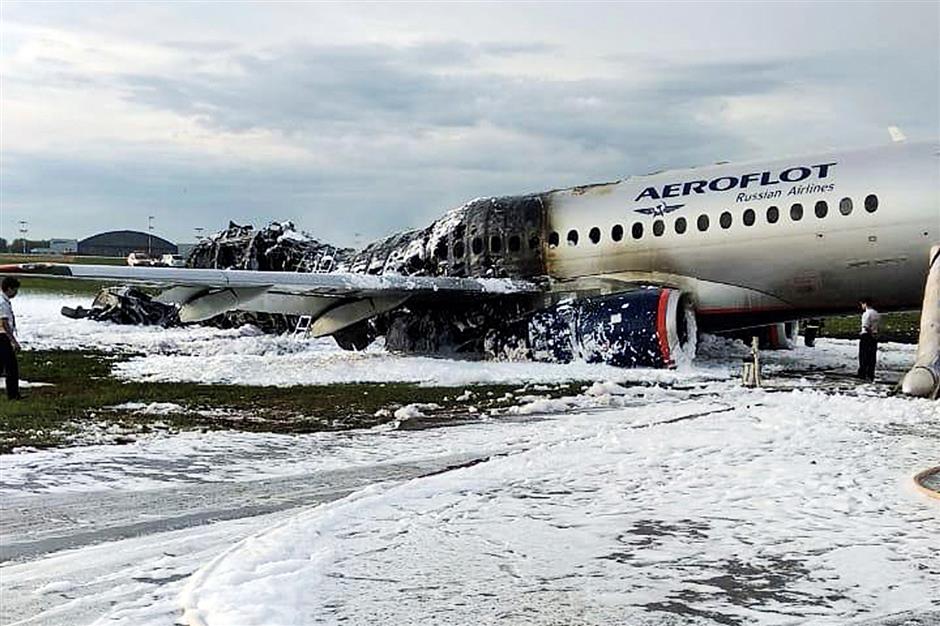Russia refuses to ground Superjets after accident kills 41 in Moscow

The Sukhoi Superjet 100 aircraft of Russian carrier Aeroflot is covered in fire retardant foam after an emergency landing in Sheremetyevo airport in Moscow on Sunday killed 41 people and injured several, some of them in critical condition. Despite the accident, Russia said it sees no reason to ground its domestically produced jets, the country’s transport minister said yesterday. The Sukhoi Superjets are the first new passenger jet built in Russia since the dissolution of the Soviet Union.
Russia sees no reason to ground its domestically produced Sukhoi Superjet 100 aircraft despite one of the planes bursting into flames during a crash-landing and killing 41 people, the country’s transport minister said yesterday.
The crash-landing on Sunday is the latest serious setback for the plane, the first new passenger jet built in Russia since the dissolution of the Soviet Union.
Investigators have started trying to piece together why the Aeroflot jet, which had been flying from Moscow to the northern Russian city of Murmansk, was forced to make an emergency landing and why that landing went so badly wrong.
Various versions are being looked into, including technical failure, human error and bad weather conditions.
Television footage from Sunday showed the plane catching fire on the runway at Moscow’s Sheremtyevo airport as it made a bumpy emergency landing.
Russian news agency Interfax said the aircraft landed with full fuel tanks because the crew lost contact with air traffic controllers and decided it was too dangerous to dump fuel over Moscow.
Asked by reporters if the Sukhoi planes should now be grounded pending the outcome of the investigation, Yevgeny Ditrikh, Russia’s transport minister, said, “There are no grounds for that.”
The plane had been carrying 73 passengers and five crew members.
Ditrikh said the bodies of 41 people killed in the accident had been recovered. Thirty-three passengers and four crew members had survived, he said. Six of the survivors were in a serious condition and receiving treatment.
The plane, built in Russia’s Far East in August 2017, had been serviced as recently as April this year.
Aeroflot now has one of the world’s most modern fleets on international routes where it relies mostly on Boeing and Airbus aircraft.
However, Aeroflot also owns at least 50 Superjets which it operates on both domestic and international routes.
The Superjet, which first entered service in 2011, has been hit by sporadic concerns over safety and reliability, including a December 2016 grounding after a defect was discovered in an aircraft’s tail section.
Interjet Airlines, a Mexican low-cost airline, said in a statement it also operated five Superjets “under the highest safety standards.” It pledged to follow the Russian investigation into the disaster closely.
A Sukhoi Superjet crashed in Indonesia in 2012, killing all 45 people onboard in an accident blamed on human error.
After Sunday’s accident, an online petition, signed by almost 4,000 people, demanded that the Russian authorities ban the Superjet.















